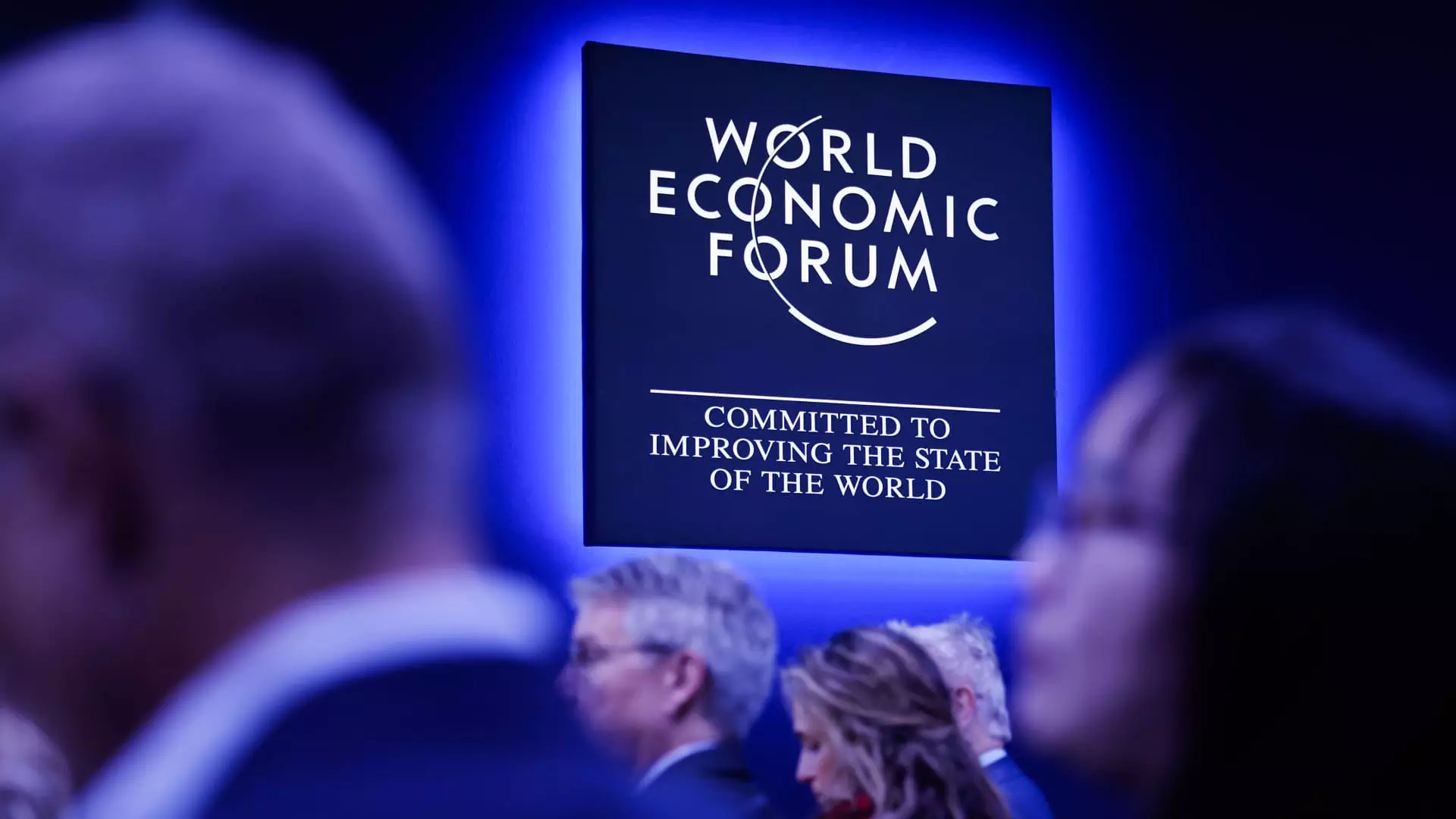The discussion surrounding diversity, equity, and inclusion (DEI) has gained immense traction globally, especially among top-tier political figures and corporate leaders. As the World Economic Forum (WEF) convenes in Davos, Switzerland, the pervasive nature of this discourse is palpable, revealing both a renewed scrutiny and a steadfast commitment to these principles. This article explores the implications of recent political actions on DEI initiatives, the evolving language surrounding them, and the perspectives of industry leaders committed to maintaining their focus on diversity amidst a shifting socio-political landscape.
The year 2021 marked a considerable shift in the U.S. political landscape with the inauguration of President Joe Biden, who openly endorsed DEI policies. Conversely, former President Donald Trump, during his virtual appearance at Davos, voiced strong opposition to the very notion of government-led diversity initiatives. Trump’s executive order aimed at dismantling federal DEI programs set a precedent, creating ripples across corporate America.
By characterizing DEI efforts as “nonsense,” Trump initiated a campaign that not only impacted federal institutions but also posed questions about the future of these initiatives in the private sector. Despite these challenges, many corporate leaders have affirmed their commitment to DEI, suggesting a growing divide between political rhetoric and corporate responsibility. This dichotomy highlights a crucial battleground where businesses must navigate their values while considering the shifting political winds that may threaten their foundational principles.
During discussions at Davos, delegates from various sectors reaffirmed their commitment to fostering diverse workplaces. Executives emphasized that while terminologies may evolve or specific programs may be revisited, their dedication to inclusivity remains firm. Leaders from corporations like Nasdaq articulated that a diverse workforce is unequivocally tied to performance and innovation. Such sentiments echo a growing recognition that diversity extends beyond mere statistics; it is essential for creating a vibrant workplace culture.
These leaders expressed that the essence of DEI resides not just in compliance with current political climates but in a genuine pursuit of innovation and effective problem-solving. They underscored that diverse teams generate a wealth of ideas and perspectives, leading to enhanced creativity. This viewpoint points to a strategic advantage that can arise even amidst unfavorable political sentiments.
As narratives surrounding DEI continue to evolve, some corporate executives have suggested a re-evaluation of the language employed in discussions. Acknowledging the existence of discontent surrounding certain DEI initiatives, these leaders advocated for more nuanced conversations that consider valid criticisms while remaining committed to the underlying principles of inclusivity.
A critical aspect of this transformation involves reimagining approaches to DEI that are less about ticking boxes and more about enriching the corporate landscape. Executive comments indicated that simply adhering to obligatory diversity quotas is insufficient; rather, genuine investment in the lived experiences of employees serves as the crux for effective DEI implementation.
The key takeaway from industry dialogues at Davos was the resounding agreement that diversity contributes to positive business outcomes. Data-driven insights from various industries indicate that organizations with diverse teams experience improved productivity and reduced risks. Companies must continue to focus on research and analytics that demonstrate the benefits of diversity, helping to fortify their arguments for DEI policies that withstand changing political tides.
Executives emphasized that sound empirical evidence not only validates their initiatives but also enhances their ability to lobby for these practices in the face of opposition. They collectively argued that fostering a diverse workplace is not just a moral imperative; it is a strategic necessity in an increasingly globalized economy where consumer demographics shape market trends.
As discussions at Davos illustrate, DEI remains an essential focus for business leaders despite the surrounding political turbulence. Executives stressed that any attempts to modify or even dismantle these efforts could undermine the hard-earned progress in achieving equitable workplaces. The challenge lies in reconciling corporate commitments to DEI with the evolving landscape in which these initiatives are situated.
The future of diversity, equity, and inclusion hinges on the resilience of leaders who prioritize these values above the immediate political climate. By fostering inclusive work environments, encouraging open dialogue, and focusing on tangible outcomes, corporations can ensure that their commitment to DEI transcends political shifts. As we look ahead, let us hope for a collaborative re-imagining of these initiatives, steering collective efforts toward understanding that diversity is ultimately about enhancing the workplace and society at large.

